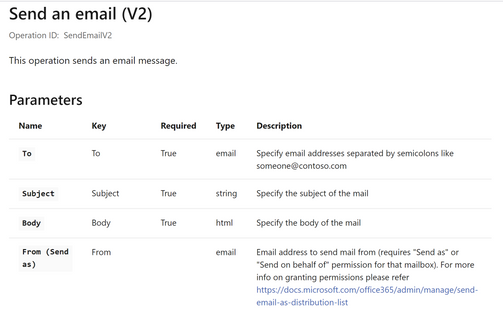
Marketing automation is a method that allows marketers automate many of their marketing tasks and to deliver the right content at just the right moment. It can also help businesses better measure their ROI. These processes give businesses a better overview of their customers, prospects, and competitors. These processes can be automated and tracked, which allows sales staff to spend more time on other important tasks.
A marketing automation platform is a digital tool that connects several tools. It can collect information about consumers, track their behaviour, and send them relevant emails. This allows marketers and other professionals to create customized campaigns that target particular audiences and build strong customer relationships.
Whether a business is small or large, implementing a marketing automation system can be a key way to improve its strategy and reach more consumers. Automated digital marketing can also improve the customer experience and brand image. Businesses can realize a positive return on their investments by making customer-centric marketing a reality.

Marketing automation is best when there is a shared understanding of how the platform works. Once the company has established a clear vision of the campaigns it would like to launch, it can begin to select the right tool. Every company uses different features. Therefore, it is important that you choose the right marketing automation software for your business.
A collaboration between the sales and marketing departments is essential in order to successfully implement marketing automation. They will need to agree upon roles, SLAs and the definitions of lead types and categories. Additionally, they will need to define lead mapping and lead scoring. Finally, they will need to define their goals and timelines.
Marketing automation software should be used with customer relationship management (CRM), software. This will enable sales and marketing departments to communicate and exchange leads information. An effective CRM will help ensure the quality and integrity of data. Combined with an automation solution, the two departments can also build advanced audience segments.
Web developers are responsible for integrating the different components of your automation system. This includes the configuration of core functionality, development of HTML emails, and integration of tracking scripts.

Integrating tracking codes to web pages or emails can help you determine where prospects are in their buying cycles and whether or not they're ready for purchase. Analyzing this data will help you to determine when and what messages to send.
You can choose to pay a flat monthly charge or per contact depending on how big your company is. However, the most successful marketing automation deployments are usually started by small, dedicated teams. It may be easier for larger organizations to scale up by paying a monthly fixed fee.
The ideal lead scoring model should be based on your customer profile, buyer behavior and transaction complexity. As you gain insights into the preferences of your target customers, it is important to continually improve and update your model.
FAQ
Can I automate WordPress?
Automated WordPress takes the manual processes associated with managing a WordPress website and automates them. This automation makes it much easier to maintain an up-to-date website, quickly make changes to your site, keep it secure from malicious attacks, and keep track of user activity.
Automated WordPress allows you to automatically update your content from the server. It makes site maintenance easier by backing up files and restoring deleted data. Automated WordPress integrates security solutions to detect any potential threats that could affect your website.
Automated WordPress tools allow you to collect data about visitors to your site. This includes information such as browsing habits and demographics. This data can be used in order to create better strategies for marketing or other initiatives.
Automated WordPress increases efficiency and reduces workloads. It also makes managing a website easier. It simplifies repetitive tasks with minimal effort and can provide valuable insights into how people are interacting with your site - all leading to smarter decisions down the line.
Automated WordPress is not only beneficial for businesses, but also allows them to take advantage marketing automation tools that can further streamline their operations. Businesses can automate their marketing campaigns and monitor performance in real-time with automated marketing solutions. These tools allow businesses to quickly create campaigns and target customers segments. They can also track the success of their efforts. Businesses can save time and money while still reaching the right people with the correct message.
Which marketing automation platform is best?
Trying to find marketing automation that works best for your organization can be difficult. There are so much choice that it can be difficult for an organization to pick the right one.
It must be easy to use, save time and money. It must generate leads, improve customer retention and increase sales with minimal effort on your part.
It should be reliable, simple to operate, and offer excellent customer service in case of issues. It must be able to perform activities such as email marketing, segmentation by customer interest or behavior, multichannel nurturing of leads and insightful reporting.
However, the most important thing is that it has the ability to give you clear visibility over customer journeys as well as generate actionable insights into what will trigger purchases from customers so you can create an effective strategy that meets their needs and wants.
When choosing a marketing automation software, look out for user-friendly features that are supported by data-driven progress monitoring at all stages of customer lifecycles and robust personalization capabilities. You'll know you have a winner when you do!
Can you automate your tasks with SQL?
SQL can automate business processes at any size, no matter how small or complex, and it does so regardless of its complexity. It automates manual steps like searching in tables or manually entering data.
Using SQL, you can quickly iterate through hundreds or thousands of records in a database table with a single command. Data can also be quickly transformed into clear, graphical visualizations.
SQL allows customers to get crucial insights into their products, customers, and activities. You can run powerful queries over structured data sets using SQL. These insights can help you increase accuracy and decrease time spent on tedious tasks.
It is easy to set up automated reports that automatically refresh so that everyone doesn't miss a detail. It saves time that would otherwise be needed to travel outside of the office. SQL can do it all, whether it's tracking and simplifying processes across departments or allowing teams to communicate key findings more efficiently.
SQL is great for automating complex calculations or data manipulation tasks. SQL can be used to automate processes that generate reports, send notifications, and trigger other processes depending on specific conditions. This simplifies workflows while ensuring that everyone is always up-to-date.
SQL can also be used to automate marketing activities like email campaigns and website analytics. You can use SQL to create automated campaigns that target specific customer segments or track the performance of your website in real time.
Is marketing automation the future of marketing?
Marketing automation is the use of technology and software to streamline, automate and measure marketing tasks. It makes it possible to use more complex tasks like customer behavior data analysis and personalized engagement. In essence, it helps marketers save time, energy, and money by automating mundane activities such as segmentation, testing and personalizing campaigns, tracking website visits and behavior, managing customer engagements across channels, etc.
Marketing automation's future lies in its ability simplify and understand customer journeys. Marketers will be able track customers' journeys across channels by tapping into richer data sources like social media platforms and connected devices to create personalized experiences that engage with customers at every touchpoint. This will allow them to create highly targeted strategies that are both agile and highly targeted.
This will enable marketers to automate decisions and increase efficiency, as well as artificial intelligence (AI). AI-powered bots will automate repetitive tasks such as scheduling emails and answering customers' FAQs. This allows marketers to focus on tasks that require human intelligence, such refining the content strategy and understanding customer sentiment about particular products.
Finally, automation will continue to grow in popularity in 2021 due to the increased acceptance of automation tools in marketing by smaller companies and advances in predictive analysis technologies that allow for insights to be generated from marketing data.
Marketing automation is an indispensable tool that can help companies succeed in today’s competitive market. Businesses can save time and money while creating personalized customer experiences with the right tools and strategies. Businesses can improve response rates and customer satisfaction by leveraging customer segmentation. Marketing automation will be more important as technology evolves to help businesses remain competitive and succeed in future.
What is automation in SEO?
Automation in SEO refers to the use of technology for automating marketing tasks and processes. It helps save time, reduce costs and make the execution of campaigns more efficient. Automation can improve SEO activities such content creation. It can also help with keyword research, linkbuilding, SEO recommendations and reporting. Automated SEO tools provide data-driven analysis which identifies high-value potential opportunities that might otherwise be difficult to spot using traditional search engine optimizing methods.
These days, there's almost nothing related to SEO that can't automatically be done--and that includes everything from monitoring website performance and competitor insights to optimizing your content for better search engine rankings.
Teams can now focus their time on strategic initiatives instead of getting bogged down with manual tasks. Automation allows them to automate in the background. Automation is a great way to increase ROI and save valuable resources by delivering rapid improvements across multiple metrics.
Even better, it allows for you to constantly keep up with changes across search engines. This makes sure that your website is competitive in a changing digital landscape.
Automating can also make it easier to create and distribute content faster. Automated tools for SEO allow you to quickly create content that is keyword rich and meets the needs your target audience. You can also use automation to schedule and publish content on various channels, including social media, blogs, and websites. This ensures that your content is more visible in search engine result pages (SERPs).
Statistics
- Companies that implement this kind of lead scoring enjoy 28% better sales productivity and 33% higher revenue growth than companies without lead scoring (MarTech Alliance). (marketo.com)
- Automator can probably replace 15% or more of your existing plugins. (automatorplugin.com)
- Not only does this weed out guests who might not be 100% committed but it also gives you all the info you might need at a later date." (buzzsprout.com)
- The stats speak for themselves: Marketing automation technology is expected to show a 14% compounded annual growth rate (CAGR) over the next five years. (marketo.com)
- Even if your database is currently filled with quality leads, how effective will your marketing automation be when you've either converted all those leads into customers or when your database begins decaying by ~22.5%/year? (hubspot.com)
External Links
How To
How do I measure effectiveness of my content market automation efforts?
Asking the right queries is key to content market automation success. What is working? What isn’t working? How can I reach my audience better? Your campaigns' effectiveness can be measured by analyzing metrics such engagement, conversion rate, social sharing, and lead generation.
To identify trends and patterns in data, you can get insight into which strategies are most effective at driving results. You can now focus your efforts on optimizing automation for maximum impact and efficiency.
You should not only measure hard numbers but also ask your customers what they think of your content experience. Collecting feedback from them directly will help ensure that your campaigns are delivering meaningful messages that drive measurable results.
It is important to use both qualitative and quantitative data when evaluating the effectiveness of content marketing automation. Are you communicating the right message? Are people clicking through or opening the message? Is your company seeing a positive return for investment? Make sure you understand what success looks like so you can quickly adjust course if needed - it's all about tracking performance so you can get the most out of every campaign.
Once you've identified the success criteria, it's time for optimization of your content marketing automation efforts. It is important to test various strategies and tactics in order to find the most effective ones for driving results. Try out different types and formats of content, such videos, infographics and podcasts. You can also test out different timing and frequency of distribution to determine what resonates best with your audience. The more you try, the better your results.